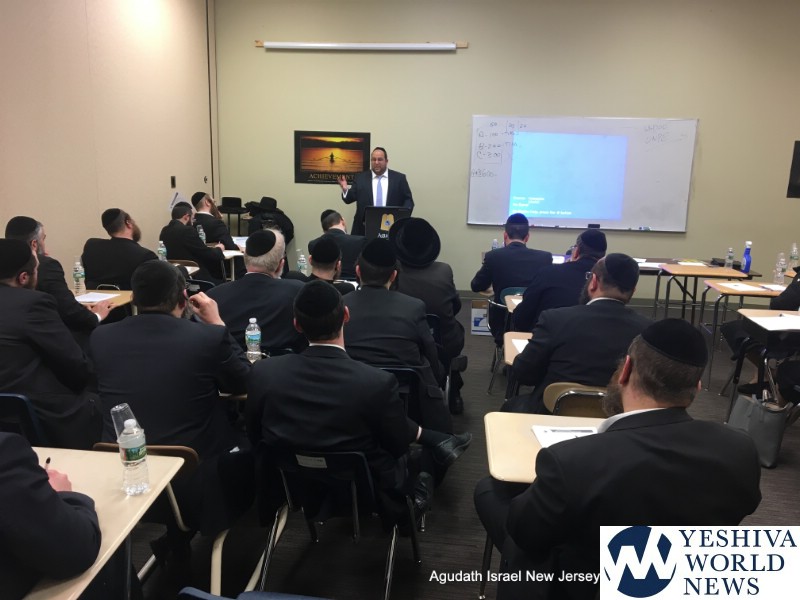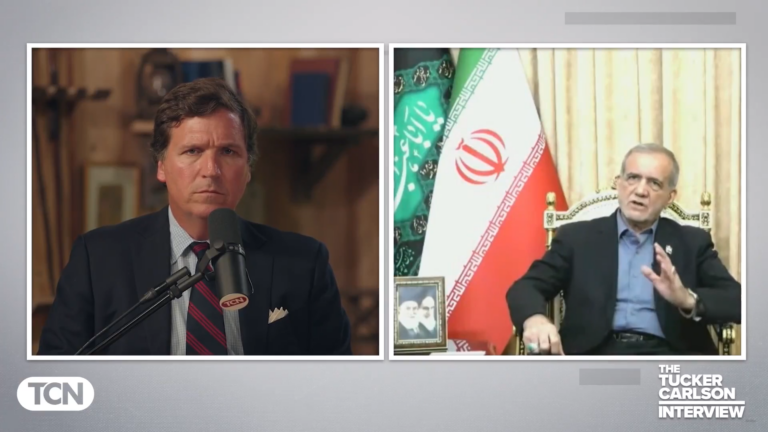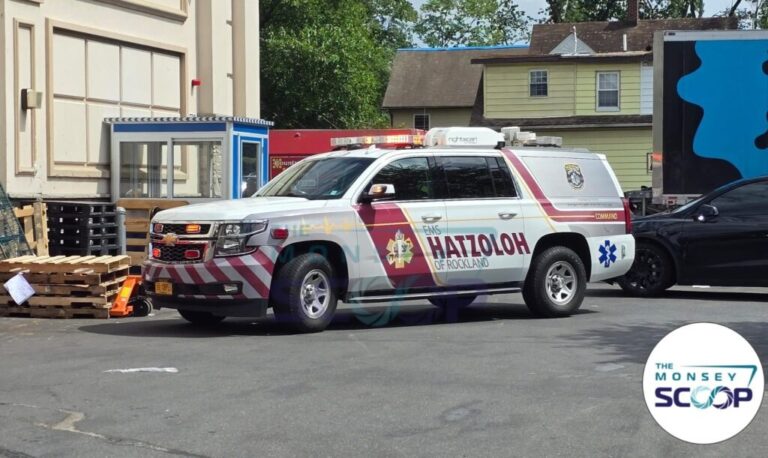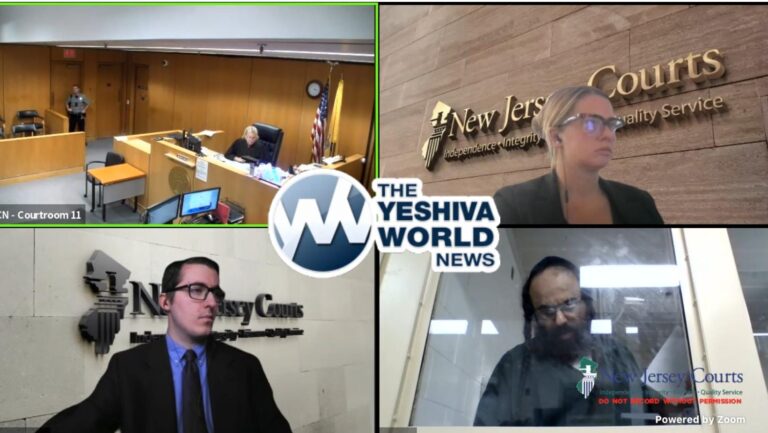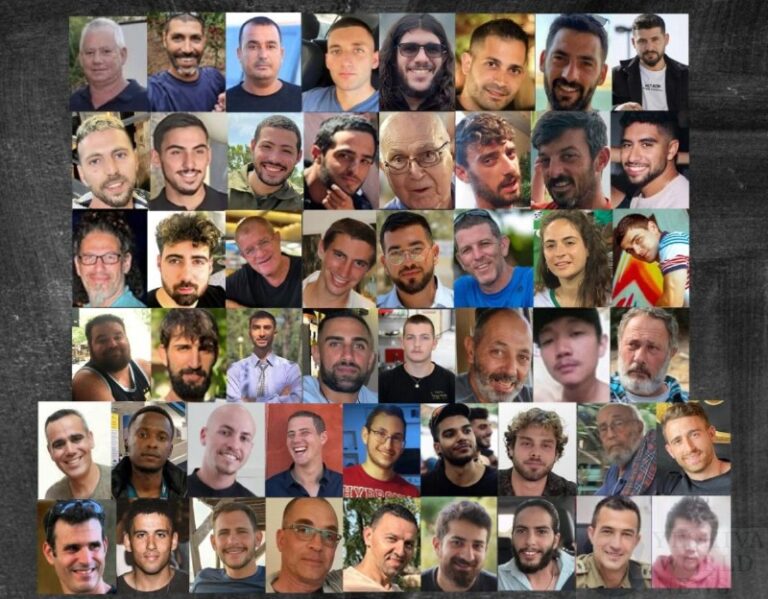It was a full house on Tuesday, April 17th as more than 60 principals and administrators took part in a workshop hosted by Agudath Israel of America’s New Jersey office. The session focused on maximizing state funding available to nonpublic schools and ensuring that students receive all of the benefits they deserve. Held at the Agudah’s PCS office in Lakewood, New Jersey, the informative event covered a variety of funding sources including title and federal lunch programs, Chapter 192 and 193 nonpublic auxiliary services, and grants covering school security, nursing services, textbooks and technology.
Drawing on his own experiences as assistant school superintendent for the Archdiocese of New York, Michael Coppotelli discussed methods of maximizing federal programs in order to best serve students, teachers and parents. Founder of the KiwiKids lunch program which provides federally funded strictly kosher lunches to pupils in grades K through 8 in Illinois, Rabbi Yitzchak Ehrman, CEO of Agudath Israel of Illinois, shared his thoughts on working with the USDA National School Lunch program to best serve the needs of yeshiva students. Rabbi Avi Schnall, New Jersey director for Agudath Israel of America, spoke about the nuances of how state funding can be used to benefit nonpublic schools.
With representatives of 50 schools in Lakewood, Deal, Jersey City and Union City turning out to participate in the workshop, Rabbi Schnall also discussed the ramifications of Governor Phil Murphy’s proposed budget which includes drastic cuts to funding for technology, nursing and transportation. If approved by state legislators, the impact on yeshivos could be extremely significant, with Lakewood alone seeing a $2.5 million decrease in transportation allowances, noted Rabbi Schnall. “It is important for our schools to be engaged in the advocacy process and by working together, getting parents and schools engaged with their legislators, we can hopefully explain to the governor and the legislature how vital these funding streams are for our students and how important it is to ensure that every child is safe and has the resources they need to be successful, no matter what school they attend.”
“One of the most productive parts of a meeting like this is not just hearing from presenters but having representatives of so many schools coming together to discuss their common issues,” said Rabbi Schnall following the event.
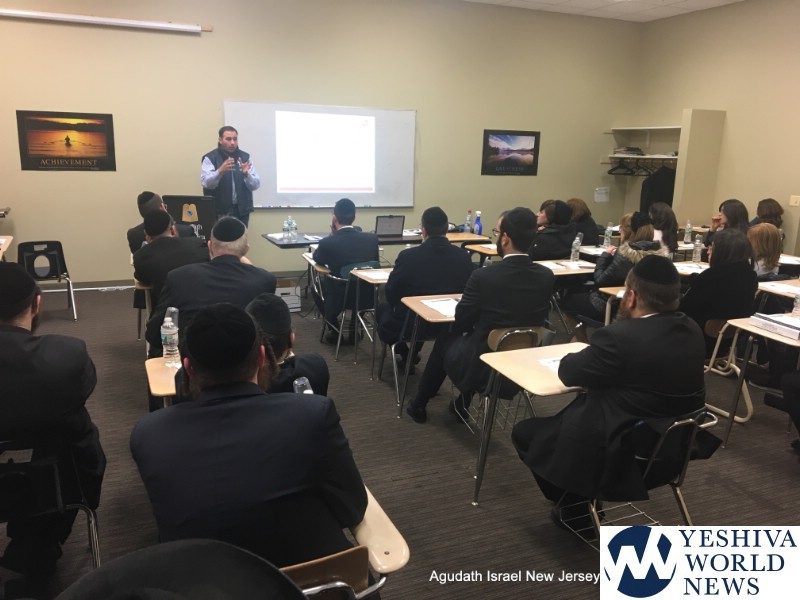
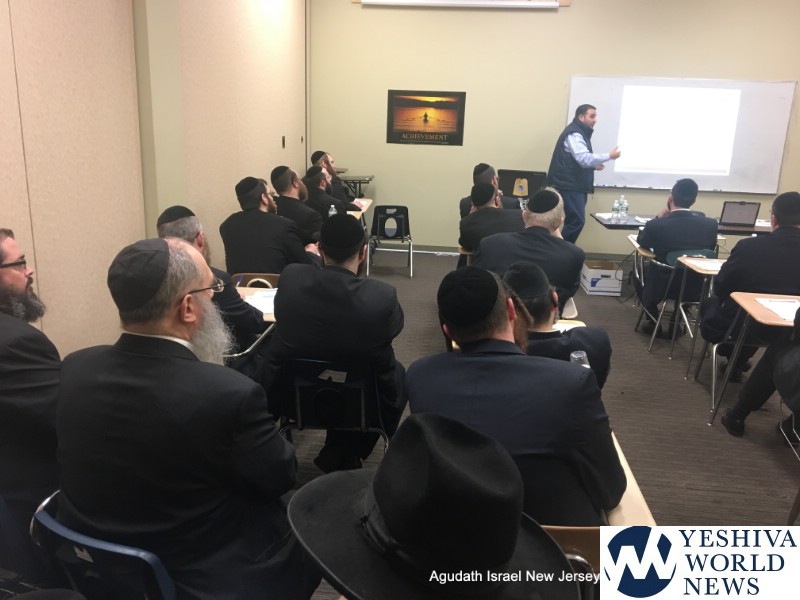
(YWN World Headquarters – NYC)

